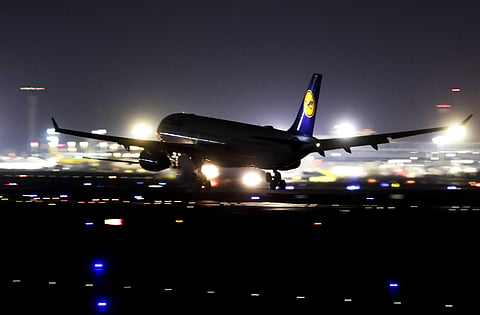

Around midnight, struck in traffic on my way home from the airport, I read about our policy planners trying to create a vibrant night economy in major cities.
Last year Delhi government announced its intent to develop Night Economy. It means economic activities beyond the regular daytime working hours. Inspiration comes from London and New York, that attribute 6-8% of their economy to night-time hours, primarily from restaurants, pubs and entertainment options.
Do we need night economy?
The argument is that it will create new jobs and business activity. I think the increase would be marginal as most of these jobs would be part-time. And the only sectors we are looking at are hospitality and entertainment, which depend on public consumption. Additional active hours wouldn’t add much to productivity.
The night economy is not environment-friendly. It needs more energy to keep outlets at night. Light pollution is a phenomenon that big cities already face, with millions of billboards shining through the night.
Sunlight influences the natural rhythm of the human sleep-wake cycle. We typically wake up with the Sun and wind up as it sets. Too much exposure to artificial light upsets this cycle and impacts our health. It impacts bio-diversity by interfering with the normal activities of plants and animals. Just google how many birds die after colliding with lit-up glass windows. Thankfully, some cities are trying to reverse it by keeping nights dark. Only emergency services like hospitals, to an extent hospitality, transportation and security services are required at night. Even they operate on a skeleton mode with minimum staff and on-call availability.
Night time economy would require additional security services. While hyper-local services may be hired from private companies – creating some employment-- the more considerable stress would come on the state agencies that have to deal with fights, accidents and other disasters. Ample reports talk about the scarcity of per capita police personnel, which will put more stress on them. The same goes for public transportation, which would have to let go of its few hours of rest. The average taxpayer would bear the financial cost of these.
Consumption is all we are trying to push that too of unhealthy food and alcohol. It seems like a customer acquisition plan for the healthcare industry. Shopping malls remaining open at night is another consumption push. As a business, if I have to double my staff for some incremental revenue, I wonder if the economics justifies this need. In any case, organised retail in India, apart from supermarkets, is hardly profitable, and it makes no sense for them to extend these hours. The Indian consumer is still very prudent compared to the debt-driven Western consumer. Night time economy will come at the cost of added requirements for staff transportation, safety measures and probably night allowances.
Legal hurdles for keeping shops open 24X7 have already been eased in Mumbai and Bangalore. Alcohol licenses are also being eased. Did it enthuse the traders to stay open for long? Not really, says data from these cities. This is potentially an indicator of the small ‘Total Addressable Market’ that this endeavour has.
In my opinion, something like Bangkok’s night flea markets would have worked better for India than opening shopping malls at night, but street or flea market vendors are not that organised. Let places like Dilli Haat, Shilparamam, Museums and Libraries stay open till late. I do not see tourists or tourism promotion as part of these plans – it may happen on the sidelines.
Finally, what are we trying to measure up to? A handful of cities in the West are open almost 24 hours. Do they fit in our cultural landscape, wellness schedule, or sustainability goals? We need to evaluate what benefits society has accrued with these nocturnal outings rather than look at it from a limited lens of perceived economics and brag-worthy lifestyle.
Can we create and leverage our character of the cities than just aping what seems to have worked in the West? Places like Delhi must first fix their safety perceptions before they think of a thriving night economy. It is a big issue for women to participate in, without whom it is bound to fail.
Finally, culturally are we averse to night-time outings? Not really. There are always small nooks of the cities open till late at night – mostly around educational institutes frequented by students and young professionals. Night street-food markets like Indore, Ahmedabad, or Bengaluru operate till late at night and attract crowds from visiting tourists to local families and friends’ groups. Night markets come up during different fairs and festivals that allow us all to enjoy night-time activities. This includes both traditional Jatras and new-age festivals like musical nights. There are elite clubs in urban districts that stay open all night.
We need a well-rounded socio-cultural review of the need for night economy and design it accordingly. Right now, it seems driven by a need to join an elite club, targeting a small slice at the top of the pyramid.
ANURADHA GOYAL
Author and founder of IndiTales
(Tweets @anuradhagoyal)